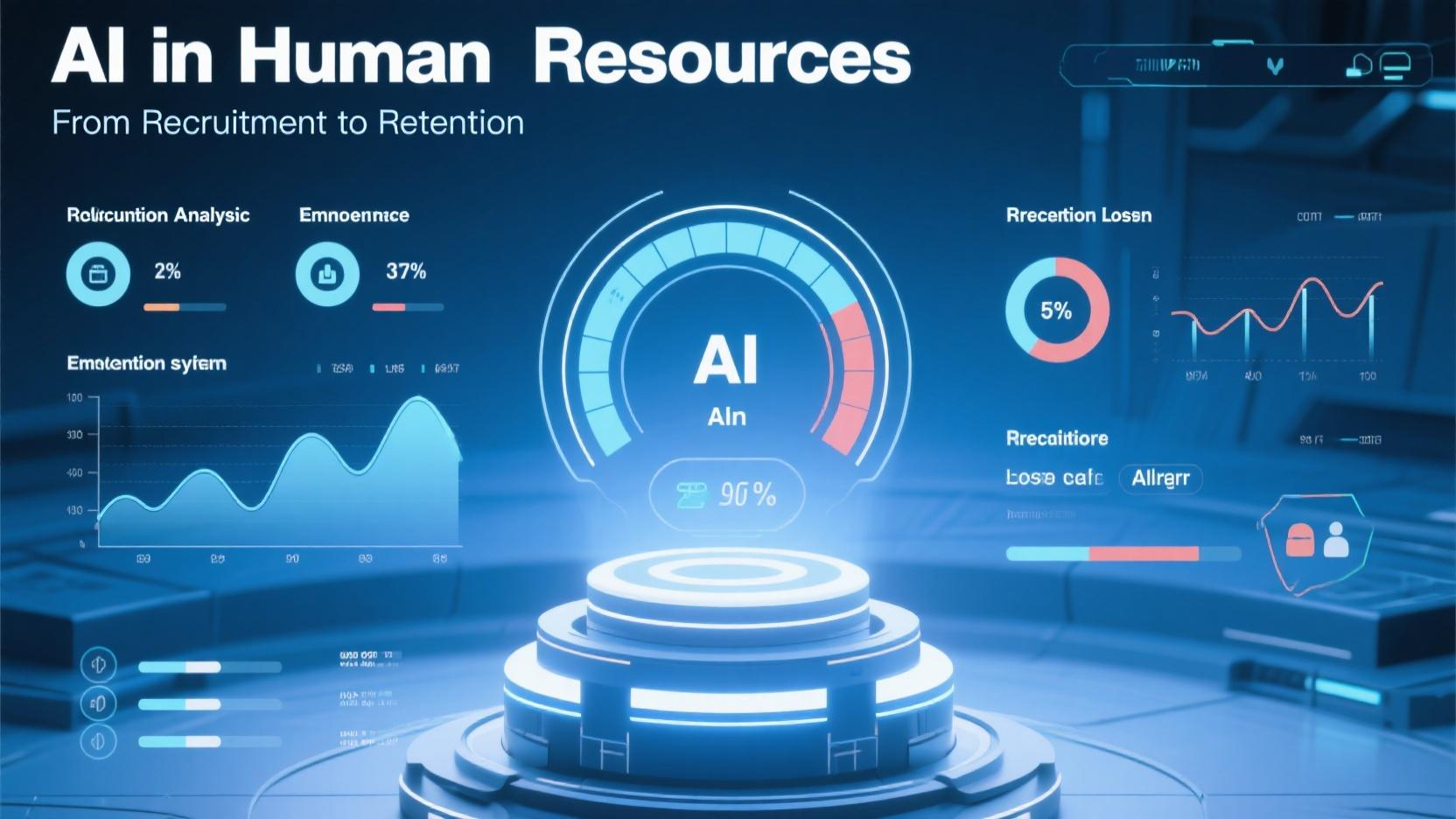How Artificial Intelligence Is Reshaping the Employee Lifecycle
Human Resources (HR) is undergoing a technological renaissance. Once considered a soft-function domain, HR is now becoming data-driven and AI-enhanced, improving how companies attract, assess, and retain top talent. From smarter recruitment to predictive retention models, AI is becoming a strategic partner in workforce management.
AI in Recruitment — Speed, Scale, and Fairness
Hiring the right candidate can be time-consuming and error-prone. AI reduces bias, speeds up the process, and ensures a better match by:

Parsing thousands of résumés and shortlisting candidates based on qualifications and predicted cultural fit
Analyzing video interviews with NLP and facial expression analysis to assess communication style and engagement
Sourcing passive candidates via LinkedIn and GitHub using intelligent crawlers
Unilever, for example, uses AI-powered systems to screen over 250,000 applicants annually, reducing hiring time by 75% and improving candidate satisfaction.
Onboarding and Employee Experience
AI streamlines onboarding through:
Personalized onboarding chatbots
Automated documentation and compliance workflows
Smart “nudges” to help new hires complete setup tasks
Companies like Accenture deploy AI assistants that guide new employees through their first 90 days, increasing engagement and reducing early attrition.
AI in Performance Management and Retention
Managing and motivating employees is more scientific with AI:
Predictive analytics flag potential turnover risks by tracking sentiment in emails, meeting behaviors, and productivity trends
Personalized learning paths are suggested based on performance data and career goals
Dynamic team structuring tools optimize collaboration based on employee strengths
IBM’s Watson reportedly predicts which employees are likely to quit with 95% accuracy, enabling proactive retention strategies.
Ethics and Employee Trust
Despite the benefits, AI in HR raises concerns:

Surveillance fears if AI monitors productivity or communications
Bias in algorithms if historical data reflects prior discriminatory hiring
Lack of transparency in decision-making models
To build trust, companies must implement explainable AI, ensure ethical data usage, and involve HR in AI model validation.
Key Takeaway
AI is turning HR from an administrative function into a strategic talent enabler. When used ethically, it empowers companies to hire smarter, engage deeper, and retain longer — all while giving employees a more personalized, responsive experience.
